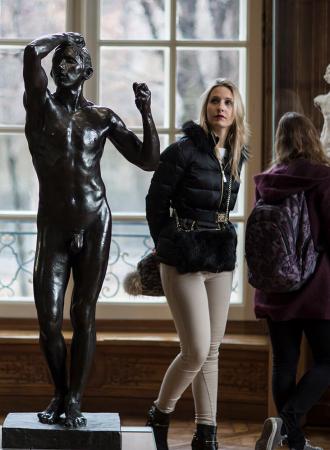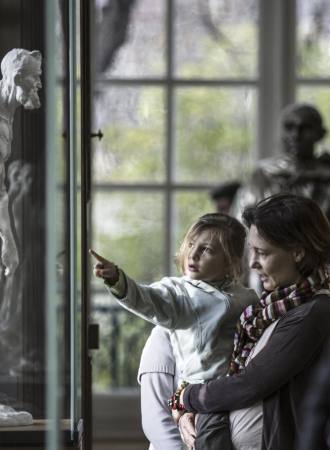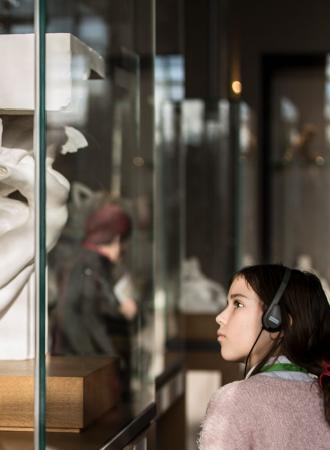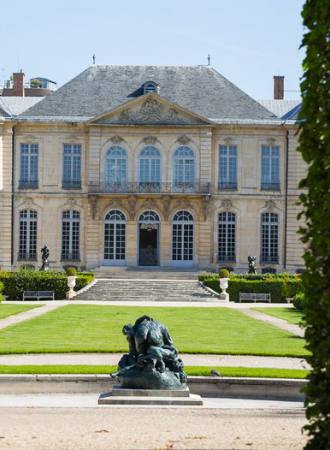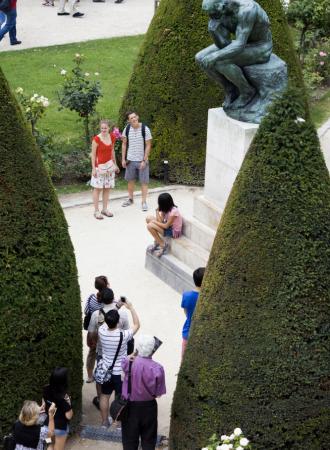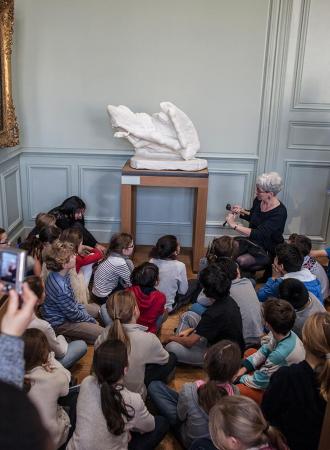Search the site
About the collections
Thanks to Rodin’s donation to the French state in 1916, the Musée Rodin has a so-called ‘historical collection’ of outstanding heritage value which constitutes the main source of information about Auguste Rodin. This collection comprises letters, notebooks, notes and drafts, ledgers, diaries, diplomas, personal documents, thousands of press cuttings and Rodin’s library. Together, these documents paint a picture, not just of the artist’s life, but of international society at large, providing a political, economic, social, artistic and literary overview of the late nineteenth and early twentieth centuries.
The collections
Historical archives
The precious collection of manuscripts (over 60,000 documents) is mainly made up of letters written to the artist by over 8,000 people (famous and otherwise) from all over the world. Alongside coal delivery receipts, wine merchants’ invoices, bills from Rodin’s practitioners and medical prescriptions, there are flattering letters from admirers, social invitations, letters from collectors negotiating prices, insults from detractors, complaints from neglected mistresses and countless poems.
Rodin began to keep press cuttings – a major part of the historical collection – in 1880, the year he subscribed to Je Lis Tout and Argus de la Presse, and the Musée Rodin has always kept up this tradition. This collection testifies to the artist’s interest in how critics viewed his work, then his life. The cuttings dating from Rodin’s lifetime were classified, ordered, translated when necessary, and stamped by his secretaries with labels such as ‘Eulogistic’ or ‘Enthusiastic’ – a quick and efficient way of informing Rodin as to the general tone of their content.
Finally, the artist’s archives held by the Musée Rodin include a very large number of calling cards – an invaluable source for students of Rodin’s life and work and a useful complement to the letters he received. These calling cards, sometimes the only record of a person’s meeting with the sculptor, contribute to our knowledge of contemporary manners and customs.
New acquisitions are added to the collection every year through purchases, bequests and donations.
Documentation
The Musée Rodin offers researchers access to an exceptional collection of documents, initiated by Auguste Rodin and constantly enriched over the years. The document collection can be divided into six major groups:
- Files on artworks associated with works in the museum’s collection
- A collection of documents on works by Rodin according to subject, plus an extensive bibliography of each work
- A collection of documents on works by Rodin in public collections both in France and abroad
- Files on ‘People’, containing all kinds of information on Rodin’s contemporaries, people linked to the institution, authors of reference articles on the artist, etc.
- Files on ‘Subjects’ relating to Rodin’s life and centres of interest
- Files on ‘Exhibitions’, containing press cuttings, documents, notes and research on the solo and group exhibitions held in Rodin’s lifetime (until 1917).
Library
The Musée Rodin Library is actually a grouping of several different libraries: the sculptor’s personal library, which he donated to the French state in 1916; part of the library of Léonce Bénédite, the Musée Rodin’s first curator (1919-1925); and the museum library proper, created in 1919 and constantly expanded ever since. At the Musée Rodin Library, researchers can view books, periodicals and academic papers on:
- Auguste Rodin and Camille Claudel
- The artistic, literary and social history of their time
- The history of the museum’s collections
- Sculpture, its history and techniques and a large collection of salon and exhibition catalogues, the oldest of which are rare items dating from 1803.
Institutional archives
These extensive public archives have been held by the Musée Rodin since it opened in 1919. They contain both paper and electronic documents produced or received by the museum, providing a record of its institutional history and the activity of its various departments: collection management, exhibition development, management composition, and the life of the museum from the time of the sculptor’s death to the present day.
Since 2003, this constantly growing collection has been processed within a filing system established in 2010, encompassing the whole collection (in series). It is accessible via a detailed search engine.
